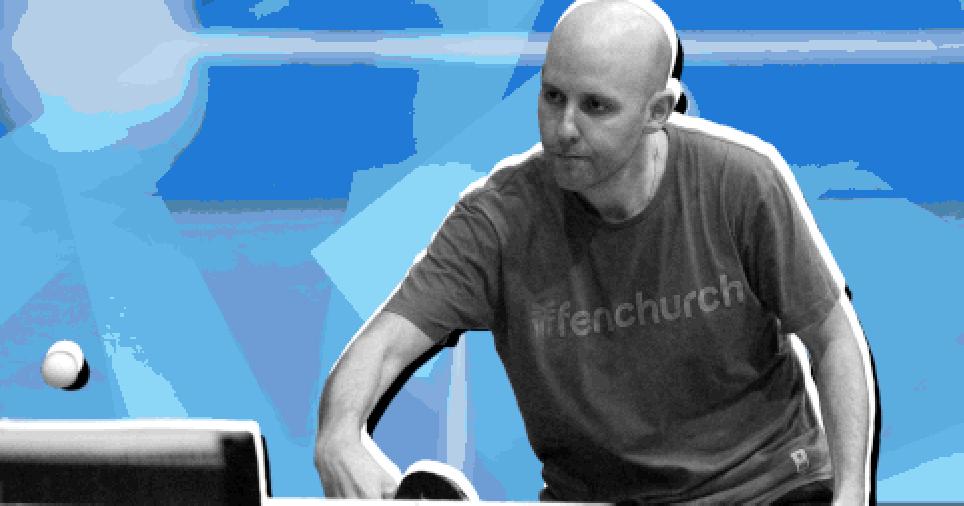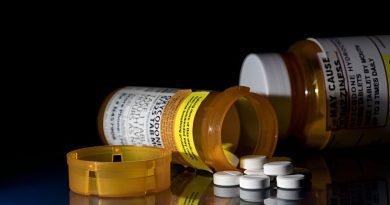After bullies and depression robbed me of all hope, table tennis was my saviour

From the moment I get up in the morning (on days where I can find the strength), to the moment I go back to bed at night I’m constantly on edge.
Any slight change in my routine can result in a full-blown panic attack.
I’ve suffered with depression and anxiety for over a decade. There was a point in 2015 where things got so bad that I didn’t know if I wanted to be here any more.
The one thing that kept me going? Table tennis.
For me, table tennis is far more than just a sport. It offers me an alternative reality; my club is a place where I feel accepted and well liked.
Every winning shot I play affords me an indescribable release.
For 30 years, it’s been an unlikely saviour for me.
At school, I was easy prey for the bullies. Being weak, fragile, and extremely shy is not a great combination. It’s hard to believe just how cruel and vindictive kids can be, unless you’ve experienced it first hand like me. The name calling and intimidation was relentless. Being used as a human punch bag wasn’t much fun either.
I had my dinner money stolen and, once I stopped having school meals, I regularly had my packed lunch tipped on the floor in front of me. I was then forced to eat it from the floor, along with any other dirt or rubbish they could find. These ritual humiliations stayed with me for a long time.
I somehow managed to survive my first year of high school, but each day was becoming torturous and there was no way I could continue the way I was.
My mother got involved, but sadly this didn’t work, as the kids learnt of it and I was deemed as being even weaker. I didn’t think it was possible, but the bullying got worse and I became more introverted, even outside of school.
However, at the start of my second year, I came up with the idea of a lunchtime table tennis club. I’d been playing at my local youth club since I was six years old and I wanted to have something to do during my lunch hour to hide from the bullies.

With the help of my PE teacher and some extra fundraising, we were able to buy all the equipment we required, and my idea became a reality. I now had a safe place to go every day, where a teacher was always present to overlook proceedings.
Suddenly, lack of friends was not an issue; I was making more than I knew what to do with! I also befriended some older kids who would act as my protection. Overnight the bullying stopped.
Unfortunately, the damage to my mental health was done and after school, I went through some of my darkest periods with the disease and it culminated in me stopping playing table tennis for two years.
Things were so bad that I couldn’t leave my house.
This was a tough time, and for long periods every aching muscle in my body was crying out for me to give up. The truth is I very nearly did.
However, during these bleakest of times, the one thing that kept me going was the thought of being able to play table tennis again.
The incentive of re-joining my teammates was to prove a significant stage of my recovery process. Eventually, I worked up the strength to go back to my club. I felt a mixture of excitement and apprehension
Immediately, I got that same sense of safety that I had at school back.
At my club I’m seen as ‘Shaun the table tennis player’, as opposed to ‘Shaun the guy with anxiety and depression’.
Having such a haven is a wonderful relief from the usual struggles of life.
I still have a degree of trepidation of course, and often getting me to the venues can be the biggest challenge of all. But providing I manage to get on the court, the transformation in me is miraculous.

It’s like a wonderful outer body experience. I forget about being ill for a while and find an inner peace.
On any given day, I might wake up feeling like I have to go straight into battle with my inner demons. Everyday tasks like going to the corner shop seem impossible. Just getting there seems like an insurmountable task.
If I do get to the threshold, getting through the door is another challenge. My anxiety spikes as I think of the queue that may lay ahead, or any interactions I may have to have with people. Nine times out of 10, I’ll return home empty handed.
But then I’ll go to my club.
The other players wouldn’t recognise this hyper-sensitive version of myself, fighting my way from one task to the next. Around them, I’m so much more assured. I feel safe and confident knowing that for the next couple of hours of play, I will be able to escape from my demons.
But back in the everyday world, it frustrates me that I can’t be relied upon to do what most people would view as a simple task.
Depression has taken so much from me but one of the worst consequences of it is feeling ostracized.
It’s therefore no exaggeration to say that without my table tennis, I doubt I could survive this excruciating illness.
In table tennis, I can be relied upon. As my teammates form a protective bubble around me; I gain much needed strength and suddenly my confidence levels surge. I soon forget about the frightened man hiding in his house, and when I’m playing, anything seems possible.
Table tennis continues to be an essential therapy in my fight against depression.
I’m hopeful that my health will continue to improve and I’d love to get into coaching as a possible career in the future.
I hope that my story shows just how powerful having a passionate hobby can be in the fight against mental ill health, and I would recommend having such an escape to fellow sufferers.
You can find out more about Shaun here
Do you have a story you’d like to share? Get in touch by emailing [email protected].
Share your views in the comments below.
Source: Read Full Article



